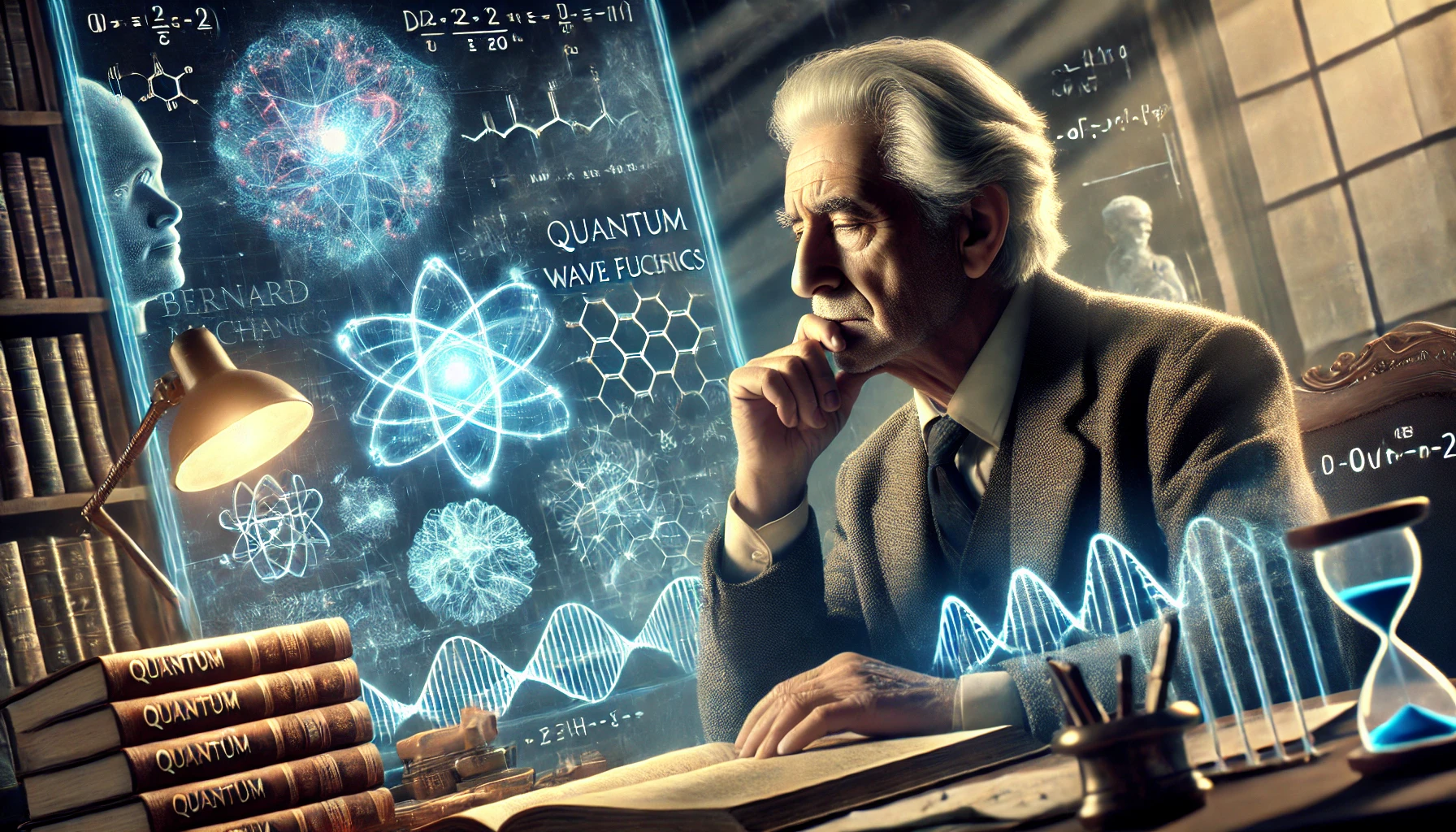Quantum Mechanics and Consciousness | Exploring the Bernard Haisch Hypothesis | Unraveling the Mysteries of Reality—How Quantum Physics May Hold the Key to Understanding Consciousness
 Dr. Bernard Haisch, drawing from his book on the Gothic, explores the idea that our universe is finely tuned for life, citing various astrophysical properties that appear remarkably calibrated. These include the ratio of gravitational to Coulomb force, the strength of the nuclear force, a specific carbon resonance, water’s expansion upon freezing, the neutron’s mass relative to the proton, the average density of matter, the strength of dark energy, quantum clumping, and the matter-antimatter imbalance at the universe’s formation. The universe’s fine-tuning suggests that life could not have evolved if these conditions were different.
Dr. Bernard Haisch, drawing from his book on the Gothic, explores the idea that our universe is finely tuned for life, citing various astrophysical properties that appear remarkably calibrated. These include the ratio of gravitational to Coulomb force, the strength of the nuclear force, a specific carbon resonance, water’s expansion upon freezing, the neutron’s mass relative to the proton, the average density of matter, the strength of dark energy, quantum clumping, and the matter-antimatter imbalance at the universe’s formation. The universe’s fine-tuning suggests that life could not have evolved if these conditions were different.
Two main explanations for this fine-tuning are discussed. The first is the multiverse theory, which posits that our universe is just one of a potentially infinite number of universes, each with its own set of physical laws and constants. In this view, we can only exist in a universe that has the right conditions for life. This concept is supported by mainstream astrophysics and has been discussed by prominent scientists like Sir Martin Rees and Leonard Susskind.
The alternative explanation involves the idea of a conscious intelligence behind the universe’s laws, which is not related to intelligent design but suggests a deliberate crafting of a life-friendly universe. Historical figures like Sir James Jeans and Sir Arthur Eddington have proposed that the universe might be more akin to a great thought than a machine, implying an intelligence governing matter.
Dr. Bernard Haisch then delves into quantum physics, particularly the role of consciousness in shaping reality. A book by physicists at the University of California, Santa Cruz, argues that consciousness is a necessary ingredient in the quantum world. Quantum theory is successful but suggests a reality beyond the physical world we typically consider. The book emphasizes that understanding the philosophical implications of quantum physics does not require specialized mathematical knowledge.
Quantum experiments, such as those involving entangled particles and the violation of Bell and Leggett inequalities, indicate that observation creates reality at the quantum level. This observation can even retroactively affect the history of quantum particles, as demonstrated by the Wheeler delayed-choice experiment. Dr. Bernard Haisch suggests that consciousness is not a byproduct of evolution but a primary element of the universe, shaping reality from the quantum level upwards.
Dr. Bernard Haisch concludes with a discussion on whether consciousness is required for quantum mechanics to function on a lifeless planet. Haisch references the von Neumann chain, which posits that consciousness is necessary to collapse quantum states. However, there’s debate over whether consciousness creates reality or if reality exists independently. Dr. Haisch leans toward the former, suggesting a profound connection between consciousness and the universe’s existence.
Key Takeaways:
- The universe appears to be finely tuned with specific constants and properties that allow for the existence of life, suggesting that these conditions are not random.
- There is a theory in astrophysics that posits the existence of a multiverse, where our universe is just one of potentially infinite universes, each with its own set of physical laws and constants.
- Some physicists argue that consciousness plays a fundamental role in shaping reality, especially at the quantum level, challenging traditional views of objective reality.
“Recent experiments led by the group at the University of Vienna Austria provide the most compelling evidence yet that there is no objective reality beyond what we observe so it’s really the observation the observation that creates the reality.”
Relevant Content:
References:

Leave a Reply